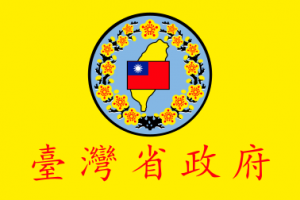Language/Min-nan-chinese/Grammar/Plurals
Hi Min Nan Chinese learners! 😊
In this lesson, we are going to learn about plurals in Min Nan Chinese. Plurals are the form of a word used to refer to more than one person or thing. Understanding plurals is essential in any language as it makes it easier to communicate effectively.
Take some time to dive into these other pages after completing this lesson: Say Hello and Greetings in Min Nan Chinese, Negation & Adjectives.
Why are plurals important?[edit | edit source]
The use of plurals is important because it helps to convey the correct meaning of a sentence. It can indicate the quantity or more specific meanings, such as the types, of the entities. Without plurals, communication would be unnecessarily complicated and even confusing.
Forming plurals in Min Nan Chinese[edit | edit source]
In Min Nan Chinese, plurals are mostly formed by adding the suffix: -chit (七). For example:
| Min Nan Chinese | Pronunciation | English |
|---|---|---|
| 人 | lâng | person |
| 人七 | lâng-chit | people |
| 书 | chú | book |
| 书七 | chú-chit | books |
As shown in the above examples, adding the suffix '-chit' (七) after the noun changes its meaning from singular to plural. It is important to note that there are some exceptions and irregular plurals in the Min Nan Chinese language.
Exceptions to the plural rule[edit | edit source]
There are a few exceptions in Min Nan Chinese where nouns do not take the '-chit' suffix for plurals. These exceptions include the following:
- Counting words: Some nouns that are used as counting words or classifiers do not take the '-chit' suffix. For example:
| Min Nan Chinese | Pronunciation | English |
|---|---|---|
| 一本书 | tsi̍t-pún-chú | one book |
| 两本书 | nn̄g-pún-chú | two books |
| 三个人 | sann-ê-lâng | three people |
- Unchangeable nouns: Some nouns are not inflected for number, such as 一家人 (tsi̍t-ke-jîn) meaning a family, 人民 (lâng-bîn) meaning the people.
- Irregular plurals: Some nouns have an irregular form when changing from singular to plural, such as 鸡 (koe) meaning chicken. Its plural is 雞儂 (ke-lâng) or 雞仔 (ke-á).
Practice dialogue[edit | edit source]
Person 1: 你有需要多买书吗?(Lí ū khì- beh to bái-chú bô? - Do you need to buy more books?) Person 2: 有。 我要买很多本书。(Ū. Guá beh to bái ē-thaⁿ-pún-chú. - Yes, I want to buy many books.)
Additional notes[edit | edit source]
In Min Nan Chinese, some proper nouns and words borrowed from other languages may not follow the rule for plurals. It is essential to familiarize oneself with these words to get their plurals right when using them in sentences.
To improve your Min Nan Chinese Grammar, you can also use the Polyglot Club website. Find native speakers and ask them any questions!
Sources[edit | edit source]
➡ If you have any questions, please ask them in the comments section below.
➡ Feel free to edit this wiki page if you think it can be improved. 😎

